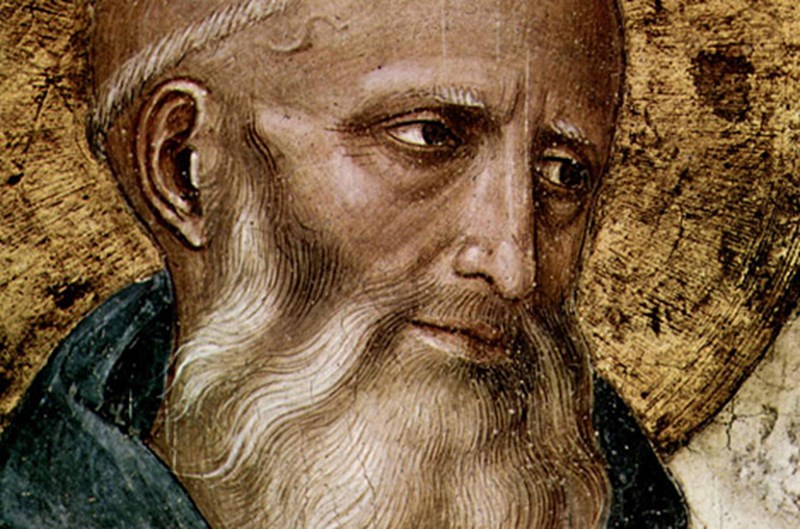Omni Concupiscentia
Fr. Adrian Burke, OSB
Thursday, June 6, 2024

"Who is the one who wishes for life and yearns to see good days?”
Rule of Saint Benedict - Prologue, 15 [Ps. 34:15]
In monastic life, we often hear about “giving up one’s will” or “surrendering to God’s will.” But common sense asks: If I don’t know what I really want, even if it is to surrender to God’s will, how can I expect to attain it? Does what I want not matter? Why would I have ever come to the monastery unless it was what I wanted to do with my life?
St. Benedict quickly gets to the heart of this conundrum by quoting Psalm 34:15 in the “prologue” to his Rule, the quote I’ve used as the header for this reflection. The prologue is a kind of introduction wherein Benedict presents the purpose of monastic life; that this biblical passage appears in Benedict’s introduction is important because it suggests that what we want does in fact matter!
At times St. Benedict seems to contradict himself. In one place he says that one must “hate one’s own will” (4:60), and in another he teaches that humility requires that one “loves not one’s own will nor takes pleasure in the satisfaction of one’s desires.” (7:31) Nonetheless, Benedict, in line with early Christian thinking, believes personal desire has an important role to play in the spiritual life.
St. Benedict uses the Latin verb volere, which means to “desire” or “want” a thing, but he also uses (as above) the word cupit, to “yearn”, and in another place the word concupiscentia, a visceral word meaning to “long” for something with an urgent hunger or craving, a bodily desire! So, as reflected in the above quotation from Psalm 34, Benedict realizes that to attain eternal life we must yearn for it with profound desire. Crave it, he says, omni concupiscentia, with all the longing you can muster in body and soul desire to be drawn into “the tent of God’s Kingdom.” (4:46; Prol. 22)
As I’ve mentioned before, what often attracts a person to monastic life are things like the monastic liturgy, the shared life of community, or interest in the ministries we do. But these things, important as they are, are rarely enough to keep us here. To persevere in our way of life we must want something more profound – and ultimately that something is some One, God; we must seek God.
God’s grace brings human longing to its fulfillment, and there is nothing we can desire more profound than God, and there is no place we’d rather be than dwelling in the “tent of God’s Kingdom”. God gives us faith and hope to harmonize our lesser desires with God’s will, sharpening our desire for God and God’s Kingdom. Sharing in God’s love, his Spirit, empowers us to attain this greatest of all human desires!